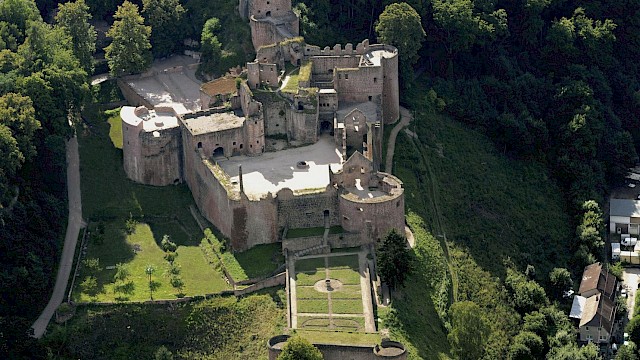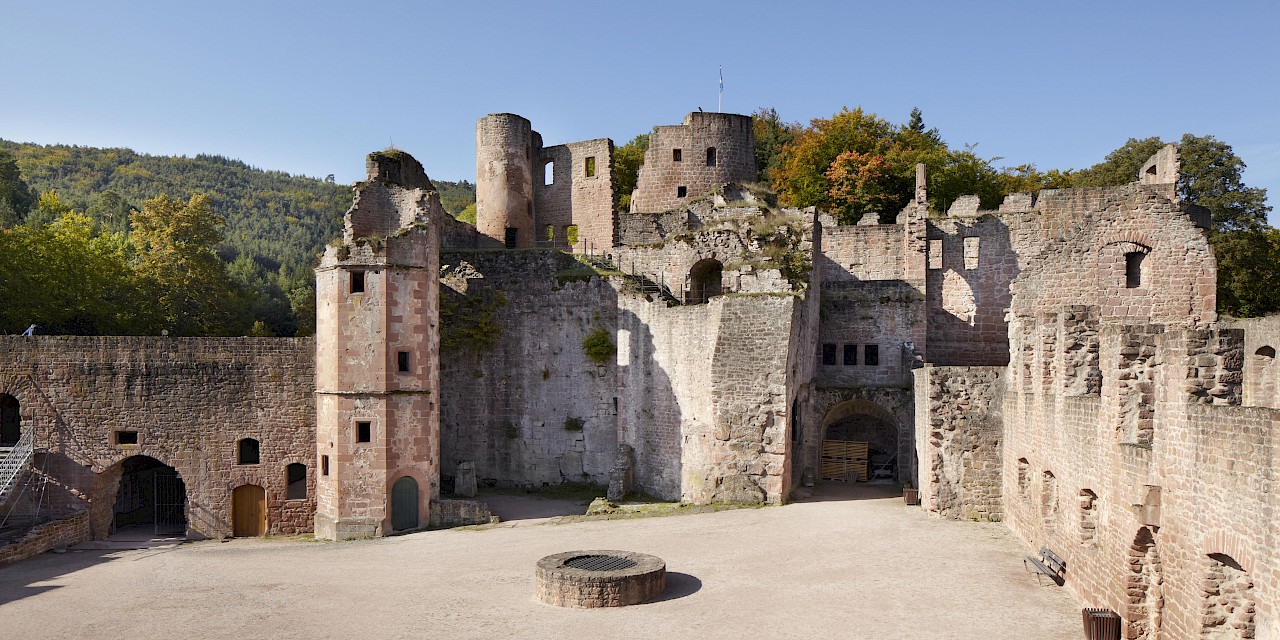Hardenburg – How an illegal construction turned into the powerful base of the House of Leiningen

The Hardenburg is all at once: A castle, a keep and a palace. Why? Like many castles it played a different part throughout history. Every new purpose required a modification. You can see for yourself. Take a walk along the walls of the keep and you will stumble upon the Renaissance Garden of the palace.
Built on the Ground of Limburg Abbey
The Hardenburg started rather small but controversial. It was built on a hill in the 13th century. But that was not quite legal. Because that hill belonged to Limburg Abbey. Yet the counts of Leiningen, who were actually the guardians of the abbey, built their castle on its land anyway. They got away with it. Probably because the emperor was busy dealing with other power struggles in the realm. The House of Leiningen gained influence and became a powerful player in the region.
The Counts of Leiningen
You can listen to the Hardenburg tell its story about one famous family member: Count Frederick II. of Leiningen. He was a knight and a minstrel.
More about him and his family’s success is revealed in the exhibition within the castle “The House of Leiningen: The rise of a dynasty from Palatine” http://www.schloss-hardenburg.de/
Exhibition in the City Museum Bad Dürkheim
Clergy, knights and nobility...how does it all fit together? It’s complicated. If you want to get to the bottom of it, take a trip to Bad Dürkheim. The City Museum in House Catoir hosts the exhibition “Between abbots and counts - Dürkheim (not only) in the Middle Ages” https://www.bad-duerkheim.de/stadtmuseum-im-kulturzentrum-haus-catoir
The Hardenburg
Kaiserslauterer Str. 393
67098 Bad Dürkheim
Internet
Hardenburg – What does it mean to be a knight?
Das Video wird durch Klick/Touch aktiviert. Wir weisen darauf hin, dass nach der Aktivierung Daten an den jeweiligen Anbieter übermittelt werden.








 Facebook
Facebook  Instagram
Instagram  Twitter
Twitter